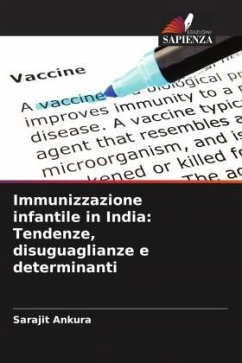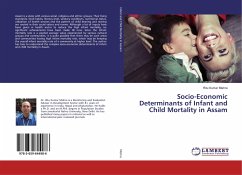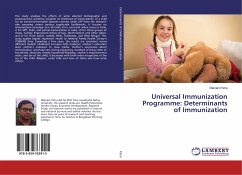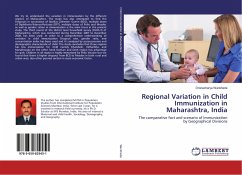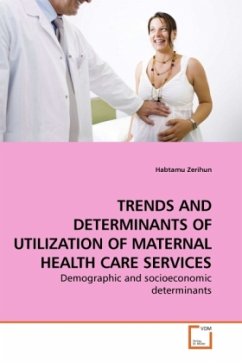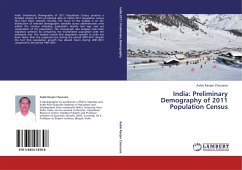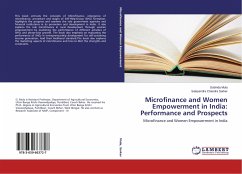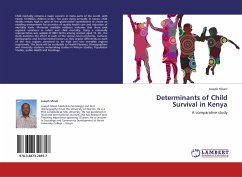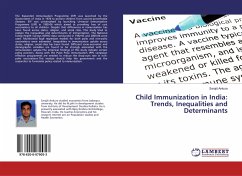
Child Immunization in India: Trends, Inequalities and Determinants
Versandkostenfrei!
Versandfertig in 6-10 Tagen
36,99 €
inkl. MwSt.

PAYBACK Punkte
18 °P sammeln!
The Expanded Immunization Programme (EIP) was launched by the Government of India in 1978 to protect children from vaccine-preventable diseases. EIP was universalised by launching Universal Immunization Programme (UIP) in 1985-06 which aimed at providing free of cost vaccinations to all children. Despite that differences in immunization has been found across states, religion, and social class. This study tried to explain the inequalities and determinants of immunization. The National Family Health Surveys (NFHS) data conducted in 1992-93 and 2005-06 were used. Multinomial logit regression mode...
The Expanded Immunization Programme (EIP) was launched by the Government of India in 1978 to protect children from vaccine-preventable diseases. EIP was universalised by launching Universal Immunization Programme (UIP) in 1985-06 which aimed at providing free of cost vaccinations to all children. Despite that differences in immunization has been found across states, religion, and social class. This study tried to explain the inequalities and determinants of immunization. The National Family Health Surveys (NFHS) data conducted in 1992-93 and 2005-06 were used. Multinomial logit regression models for both polio and non-polio vaccinations were estimated. Inequalities in immunization uptake across states, religion, social class has been found. Different socio-economic and demographic variables are found to be strongly associated with the immunization uptake.The empirical findings of this study indicate certain policy pointers. Along with the Pulse Polio Immunization (PPI) campaign effective programmes are needed to reduce the drop-outs rate in non-polio vaccinations.This analysis should help the government and the researcher to formulate policy related to immunization.




